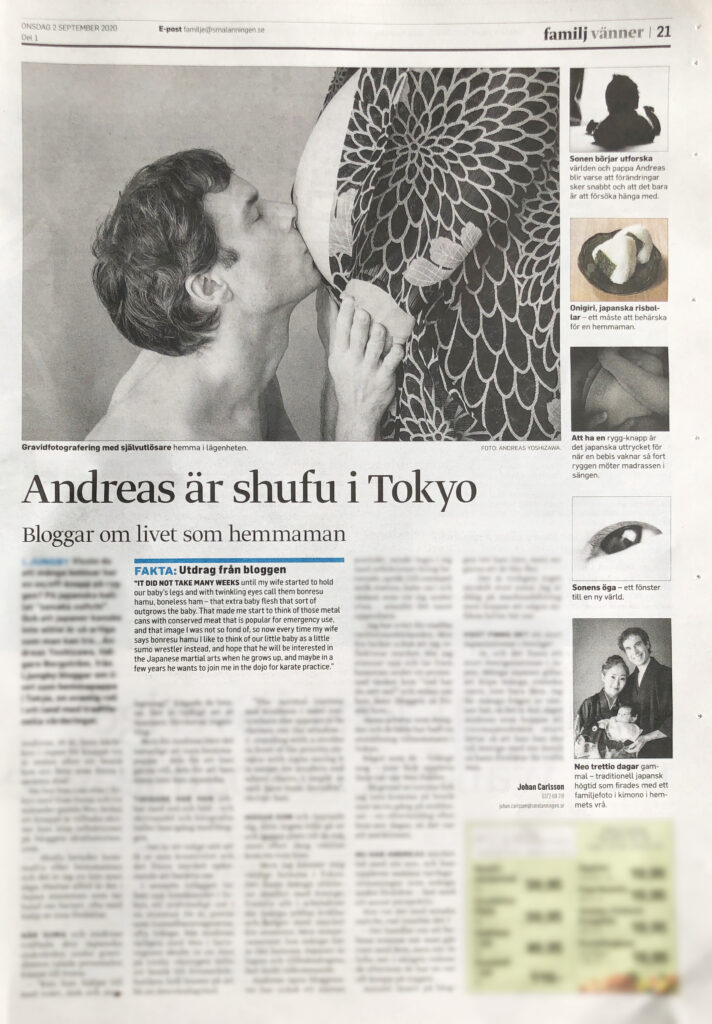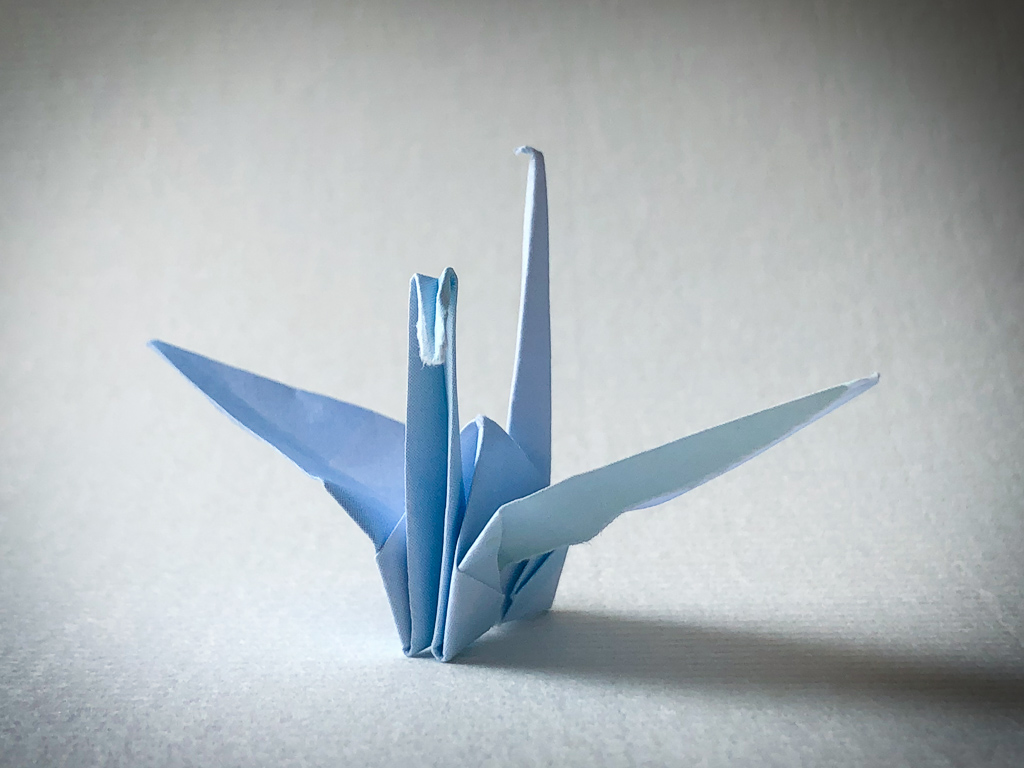Last week I was asked by the local newspaper Smålänningen from my hometown in Sweden if I was interested in a story about this blog, and much to my surprise I did not even hesitate before I said yes please. Old me would have tried to convince myself that it was a bad idea, that I should really not put that stress on myself and anyway no one can possibly be interested in reading about me in the newspaper, but new me thought it was a fantastic opportunity to reach more readers with my blog – after all that is why I am writing.
The conversation over Internet audio resulted in a little story about this blog and my life as shufu in Tokyo, and after having discussed my blog like this for the first time, I have found thinking a lot about the transformation of my life that has happened since I met my wife, and the privilege it is to be able to live in Japan and to share my life here through this blog. I am living in a country where I feel at home like I have never done before, and this past week has made me reflect on why that is, why it is that I like it so much here.

My short answer (as always) is the beauty I find here. But instead of settling for the easy explanation (which probably is very true) that I have a beautiful wife and family to share my life with here, instead of talking about all the kind warm people I have met, instead of discussing the wonders of the Japanese cuisine or describing my fascination and love for the Japanese aesthetic language, instead of explaining why I sometimes feel moved to tears when I go to the mountains or stand under an old tree feeling its soul, I choose to write about the beauty that I find where I do not expect it, an everyday kind of beauty that often is well hidden and an acquired taste, but nonetheless quite exquisite in its essence.
However wexing it sometimes might be, rules are being followed in Japan to an extent that I have never experienced before, and that has a very soft spot in my heart, being a stickler for following rules myself (often rather too much I think). When rules are combined with forms to fill out however, I am easy to panic (probably because of my above mentioned tendency to over-follow rules, and then I feel so grateful for having a wife who thinks filling out forms is a piece of cake). Since filling out forms is a very big deal in Japan, I have plenty of opportunities to panic, but even in performing these seemingly dry bureaucratic necessities I have discovered that there often is beauty hiding there, just waiting to reveal itself.
I remember when my wife and I were getting married, which really meant going down a steep set of steps to the dark corridor in the basement of the Setagaya Ward Office an early Sunday morning and handing in a paper to the on duty weekend staff. The next day I went back to the ward office by myself in order to receive the certificate of marriage needed for us to proceed with my visa application, and when I got there I was greeted by an administrative officer whose expression made me feel like he was carrying the weight of all trouble in the world on his shoulders; he looked at me, and showed me the paperwork we had submitted the day before. There was a post-it note with some for me unreadable text attached to it, and I felt my stomach jump and my heart skip a beat – how could I ever resolve this what appears to be extremely severe situation that apparently must mean that at least we can not get married (I had time to make up all kinds of terrible happenings during this short time when my heart did not beat). Before handing in the paperwork we had consulted the ward office multiple times to make sure that we would fill out the forms correctly and that there would be no delays in registering our marriage – so what in the world could be so terribly wrong, I remember thinking.
I believe it was the English speaking foreign residents contact person that came to my rescue. She looked at the post-it note and explained to me that we had written the names of my parents the wrong way. We had written their names like foreign names normally would be written in Japan, with a dot between them, and this we should not have done. We had written Surname・First name (using a dot) when we should have written Surname, First name (using comma) instead. The administrative officer with the troubled eyes looked at me and slowly drew a comma on the post-it note, could I possibly please be so kind as to change the dot into a comma instead? I thought I was dreaming – all this distressed man wanted was for me to draw a little line downwards from a little dot on a piece of paper. With shaking hands I did, and when done my wife and I were married. How wonderfully beautifully sweet this situation was – it has come to become one of my favourite memories.

The more I get to know this country, the more I find to appreciate, and I have gradually discovered that little gems are to be found where I least expect them to be – little things that have the power to shift my feelings, to take a negative emotion and turn it into its positive opposite. Since filling out forms of any kind is my worst nightmare, having warm fuzzy feelings towards an insurance company was the last thing I thought I would experience in this world. But lo and behold, in Japan it is possible. Just recently my wife needed to fill out forms to make an insurance claim to receive money to help cover the cost of giving birth, so she called the insurance company and they sent the forms to fill out. When I saw the envelope I felt my stomach tighten, but opening the envelope a little origami bird chirped its way into my hand. Someone working at the insurance company had taken the time to fold a little piece of paper into a small bird before sending insurance claim forms to a customer who just had had surgery – can it get more beautiful than that.
Share this post

I recognize the feeling when reading about how you want to stick to the rules. So do I, and that makes it really uncomfortable when the rules are stupid or hard to endorse. I was wondering about these Japanese forms, are they instructive enough? I mean, did you write a dot instead of a comma in violation of the rules? Or were you left to figure out by yourselves how to do the filling correct? I think it might be good if you (and I) learned to be a bit more careless with a least some of all the regulations. But of course, this time it was really important to correctly bring about the comma. After all, your marriage depends on it!
Best wishes
Johanna
Johanna, thank you so much for your comment! I always appreciate your reflections. I will have revisit the instructiveness of the forms when I have learned more Japanese (or maybe by then I care a little bit less 😉 )